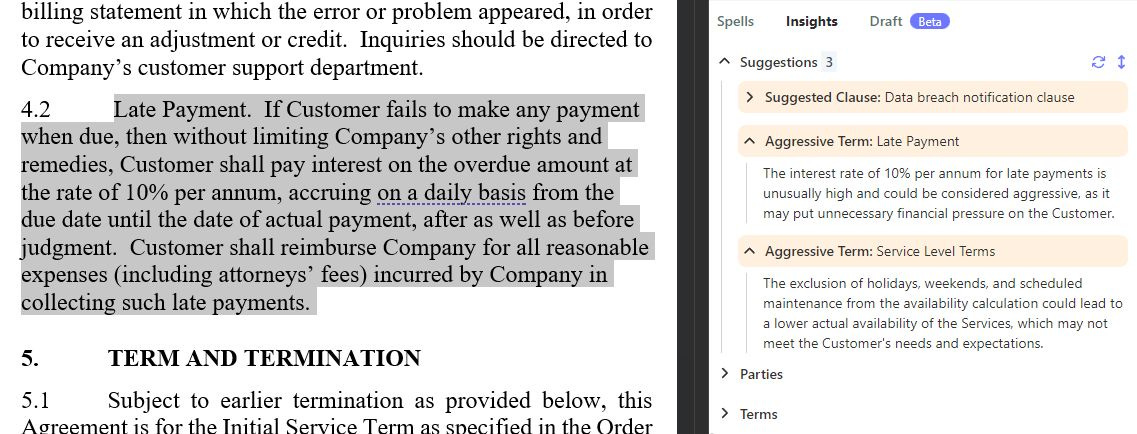A Generative AI Copilot for Lawyers (with Demo)
Rally Spellbook will write, edit, and review contracts
“Spellbook is like a GitHub Copilot for lawyers or an AI copilot for lawyers,” said Scott Stevenson, the CEO of Rally. He added, “GitHub Copilot was the inspiration … I remember very well the first time I used it.”
Rally created Spellbook by fine-tuning GPT-3 on legal documents. Stevenson said the company also uses some of Cohere’s models and others they have developed in-house. The software suggests language for contacts and also helps review contracts. “You can ask questions about documents, find missing clauses, unusual terms, and things like that … You can also ask freeform questions like ChatGPT,” said Stevenson.
See Spellbook in action by clicking on the YouTube image above and skipping ahead to timestamp 4:47.
Wizard Powers for Lawyers
Rally introduced Spellbook in November and almost immediately had a backlog of 100 law firms requesting access to the software. After the launch of ChatGPT, the backlog swelled to hundreds. During an interview at the Synthedia 2 online conference, Stevenson commented:
I was super skeptical as a programmer at first. GitHub Copilot uses GPT-3 and Codex to help programmers write code more efficiently and to suggest code to them. Of course, GPT-3 and Copilot wre trained on tons of code as well as a huge portion of the internet … I think both programmers and lawyers are traine skeptics who have to be able to spot issues.
The first time I used it it outupt 20 lines of code that I thought were garbage and I thought, ‘Wow, this this doesn’t work. This tech isn’t quite there yet.’ And then 10 minutes later I realized that the code was anticipating an issue that I hadn’t thought about myself.
That was the first time I felt outsmarted by AI. It was truly thining 10 minutes ahead of me and had discovered a problem I didn’t see and it had written more robust code that what I’d been thinking of to deal with and mitigate that problem. That moment was when we decided, ‘This has to exist for lawyers. This had to exist for contracts.’
Beyond Generative
The generative features of large language models have created a lot of interest in the technology across application scenarios. Summarization features have also emerged as useful for many professional users, including lawyers. However, evaluative features may turn out to be just as popular. Stevenson recently shared a beta feature that analyzes contracts and highlights clauses of interest.
You can see how this type of review could help make lawyers more efficient and even train associates on the finer points of law and key practices to be aware of. I could also see this as a very useful consumer application for reviewing contracts, terms of service, and other agreements that everyone comes across frequently in our digital age.
Rally’s Spellbook is a good example of how large language models are not one-trick ponies. Many application providers continue to discover new use cases that can benefit from the technology and expand the feature set.





I’ve been following Harvey AI. Recent announcements by PwC legal team and Allen & Overy.
https://aibusiness.com/nlp/meet-harvey-ai-chatbot-and-legal-assistant